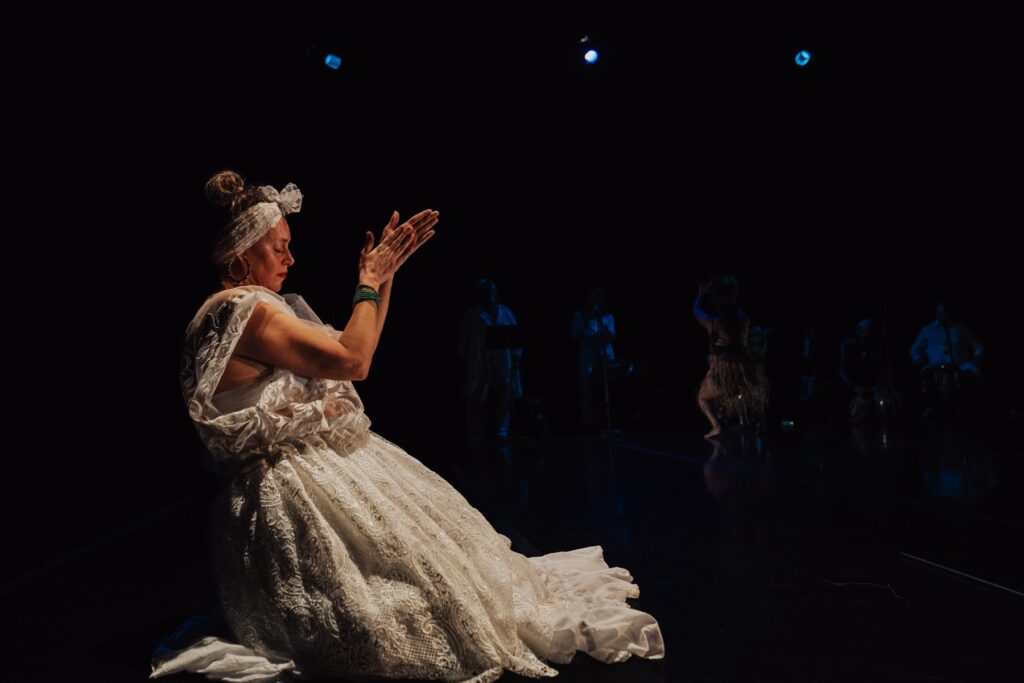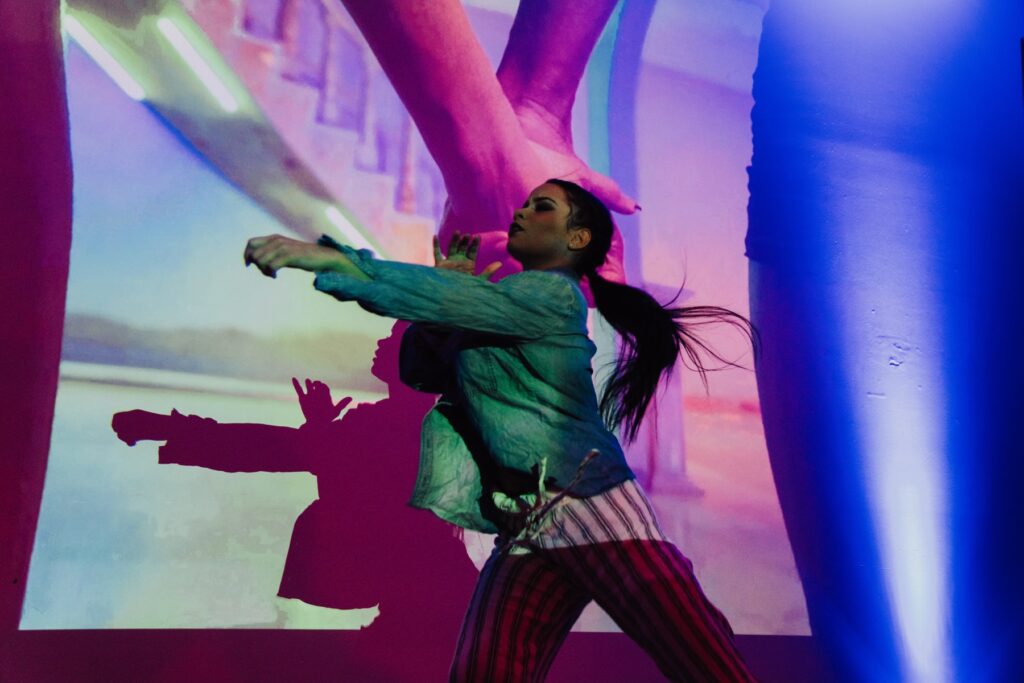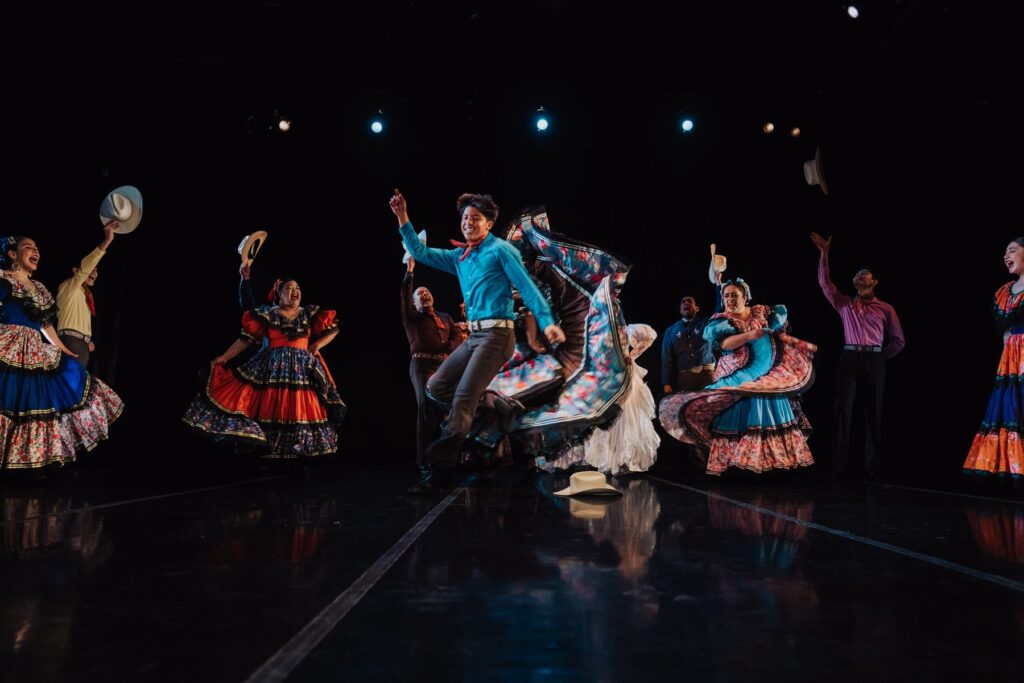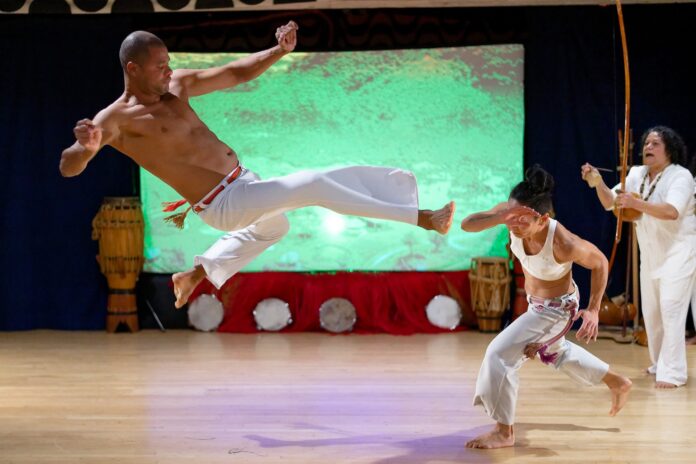>>We need your help! Become a 48hills member today so we can keep up our incredible local news + culture coverage. Just $20 a month helps sustain us. Join us here.
It can be difficult to hold on to joy when much remains in turmoil. It seems as though this pandemic-weary world is filled with global conflicts, climate disasters, political unrest, inequity, and growing culture wars. Meanwhile, for many of us our personal and work lives continue to shift according to changing structures, the economy and so on.
I find relief in dance where I can be transported into spaces of possibility, reflection and catharsis. I’ve experienced recent concert dance performances that are well-crafted, deeply thoughtful and even entertaining.
Yet few companies have proclaimed joy as the focus and intent of their work. The 18th Annual CubaCarbe Festival of Dance and Music (Wed/5-June 16 at multiple venues, SF), however, put out the call to artists working within the Afro-Caribbean diaspora to address the topic head on: Acts of resistance, acts of joy. Where are these two acts visible in your culture? How do we resist? How do we find and express joy?
Executive Director and Co-Founder Jamaica Itule explains. “The act of joy and celebration is revolutionary in these cultures. It plays an integral part in survival throughout history and especially now.”
CubaCaribe is the only local festival to focus on popular, contemporary, and folkloric cultural expression, religion, history, and politics of the Afro-Caribbean diaspora. It features lectures, performances, cross collaboration,s and community gatherings with choreographers, dancers, composers, musicians, and scholars sharing their knowledge of dance and music.
“Dance and music have been and continue to be a way to resist oppression, release joy, alleviate suffering collectively—all critical to human survival and built into the fabric of Cuban, Brazilian, Haitian, Afro-Peruvian, Puerto Rican cultures,” says Itule. “CubaCaribe honors that celebrations of joy are revolutionary: They are how living art forms evolve and respond to the changing world.”

The Festival opens Wed/5 at the Museum of the African Diaspora (MoAD) in San Francisco with a lecture on resilience and adaptation in Cuban and Brazilian music and dance by composer, performing artist, and musicologist John Santos. Also at MoAD on June 12 Hector Lugo and La Mixta Criolla host a live performance and discussion about Afro-Puerto Rican music, along with film shorts curated by Eli Jacobs-Fantauzzi.
Onstage, the Festival celebrates world premiere performances by local companies performing original choreography. Weekend one (June 7-9 at Dance Mission Theater) features Yamulee Project San Francisco, Folklo Ayisyen Lakay, Agua Doce Dance, Rueda Con Ritmo, returning favorite Los Lupeños de San José, Cunamacué, Marco Palomino & Fredrika Keefer, and Grupo Experimental Nago.
Special guest Herencia Guantanamera from Guantánamo, Cuba will perform Tumba Francesa, an Afro-Cuban song and dance form combining musical traditions of West African, Bantu, French and Spanish origin. Introduced in Cuba by enslaved people from the French colony of Saint-Domingue which later became Haiti, Tumba Francesa is not commonly performed in the US.
For the second weekend at ODC Theater (June 14-16), Alayo Dance Company and ABADÁ-Capoeira Performance Company investigate the history and significance of Carnaval in Brazil and Cuba, specifically to the African heritage and culture, deepening understanding of the cultural legacy of Blocos and Cabildos in Comparsas in Carnaval and how they have historically functioned as forms of resistance and power and expressions of joy. Artistic Director Ramón Ramos Alayo says the evening will bring the community together, strengthening connections around shared stories and uplifting the Afro-Cuban and Afro-Brazilian community.

Alayo seems to be no stranger to joy. Warm, with a huge grin and big laugh, he possesses an infectious positivity and is well known affectionately for creating community among his students, dancers, and fellow artists here in the Bay Area, Cuba and throughout the US.
Alayo, who has lived and worked in the Bay Area since 1998, returns to Cuba regularly bringing students to train with him and to work with dancers there. Last season, he created an original work on dancers in Santiago, filming it in his own home. Screened as part of the Festival, the film was a moving albeit brief insight into the challenges of being a professional artist in Cuba, where economic and political freedom continue to limit opportunities. This year, Alayo brings Cuban dancers to San Francisco to perform live with his company, where their Cuban training brings noticeable depth to his work.
He says it’s rare to find US-trained dancers who have the skills and experience required for this kind of dancing, explaining that his work combines Cuban, western and street dance sensibilities. In December Alayo returned to Santiago to work with dancers from the company Danza del Caribe as well as local street dancers.
“I like to combine modern dance with folkloric,” he says, adding that this can make it difficult to find dancers with the skills he needs within the Bay Area. He explains that in Cuba being a dancer is a career. “You go away from home to study from 5th grade for eight years. You just dance every day. You train in Afro Cuban, modern dance, Cuban folklore and ballet.”
The cost of living being what it is in the Bay Area, it’s common for local dancers to dance part-time or with multiple companies, while also working to pay the bills. In Cuba while dancers don’t have extensive professional opportunities within their country, they can dedicate themselves to intensive conservatory training full-time.

One such dancer, Marco Palomino, met Alayo within three months of being in the US and immediately felt the affinity of their similar dance backgrounds in Cuba despite the years that separate them. Palomino had been living in Los Angeles for about a year and a half, choreographing commercial and concert gigs, but rarely has professional opportunities that feel quite as grounding as this one with CubaCaribe.
He first performed with Alayo Dance Company in the Festival last year. “It’s a Cuban festival, so we all speak Spanish,” he says. “Cuban dance is a combination of salsa, rumba, a mix of African and Cuban forms. When I dance with Ramón, I feel like we’re in Cuba.”
Still, getting used to being here has been a process. Palomino recalls experiencing major culture shock when he first arrived, explaining that everything surprised him, he says. “To have your own car, use a credit card, or shop at grocery stores where every shelf is full,” he trails off. In Cuba, he says, “The system operates quite chaotically,” noting that his professional parents (his mother is a psychologist and his dad is an engineer) combined earn only $20 per month.
“My father has friends who are farmers and they gift him food. If the farmers need help with something my father can assist with, he gladly does so. Each person builds a community of friends who support one another. It sounds more beautiful than it actually is. Often, people go through a lot of trouble to find products, and the services are of very low quality.”
Palomino recently got his green card which means he’ll continue to work in the US as well as abroad, but he admits the familial experience of CubaCaribe is rare. This year, more than ever, the festival is a powerful community celebration of joy and resistance, a homecoming for some and a transportative experience for others. Alayo says, “It’s a very ambitious festival. We’re bringing a lot to the community.” And, with his infectious smile, adds that plans for the next season have already begun.
18TH ANNUAL CUBACARIBE FESTIVAL OF DANCE & MUSIC Wed/5 through June 16, multiple venues in San Francisco. More info here.







